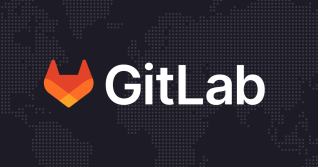Cloud computing has become the dominant IT paradigm and multi-cloud looks poised to be the primary approach, with 81 percent of enterprises already adopting a multi-cloud strategy.
A multi-cloud strategy prevents vendor lock-in, which is increasingly important as three major providers (AWS, GCP, and Azure) dominate the market. Despite the many benefits of a multi-cloud strategy, deploying across multiple clouds is still incredibly complex. While Kubernetes has emerged as the standard container orchestration platform, most organizations are running more than just container workloads, and there’s currently no standard for workload portability across managed services. What’s needed is a consistent, multi-cloud, open source interface, and we think there’s a new, interesting project up for the challenge.
Crossplane aims to simplify multi-cloud strategy
Crossplane, announced today, is an open source multi-cloud control plane sponsored by Upbound. Crossplane introduces a set of workload resource abstractions on top of existing managed services and cloud offerings to enable an unprecedented degree of workload portability across cloud providers. There are six levels of multi-cloud maturity and until today, application portability (i.e. the ability to run an app on any cloud) is incredibly rare and has been difficult to achieve.
Upbound is the sponsoring company behind Rook.io, a cloud native storage service for Kubernetes, and are experts in running managed services the cloud native way. With this project, Upbound strives for Crossplane to become a universal API for cloud computing, and a control plane for smart controllers that can work across clouds. The end goal is to enable a clean separation of concerns between developers who want to consume resources without knowing the details of how they are provisioned or managed, and administrators who want to tightly control the details of implementation and policies.
How does Crossplane compare to existing tools?
Similar projects exist, but are not nearly as flexible in their ability to support workload portability across multiple clouds. For example, Terraform and AWS Service Operator are similar infrastructure provisioning tools, but they do not support workload portability across cloud providers. Terraform can dynamically provision infrastructure and typically performs changes only when the tool is run by a human, and AWS Service Operator can only provision managed services in AWS.
As a result of an open API approach, Crossplane has an opportunity to change the cloud industry as we know it, and we’re excited that they've chosen GitLab to be the first complex app deployed with them.
Why Crossplane + GitLab?
"GitLab has a proven track record supporting multi-cloud DevOps,” says Bassam Tabbara, founder and CEO at Upbound. “Customers value the simplicity of the toolchain and the flexibility of the diverse deployment environments that GitLab offers them. Their open collaboration and culture made them the natural fit to be the first complex app deployed with Crossplane."
At GitLab, we’ve committed to multi-cloud DevOps, as detailed in my recent post on why GitLab will use all three public clouds. Most of our customers are already leveraging a multi-cloud strategy using GitLab CI/CD and are increasingly looking for more ways to deploy their code across multiple cloud environments. The choices available today are too complex and vendor driven, but with Crossplane the ability to orchestrate clouds becomes simple. We look forward to collaborating with them on this vision and as the first complex app deployed with Crossplane.
Once GitLab has been successfully deployed with Crossplane, the next step is to use the project to deploy applications from GitLab. We’ll provide updates as they become available.


